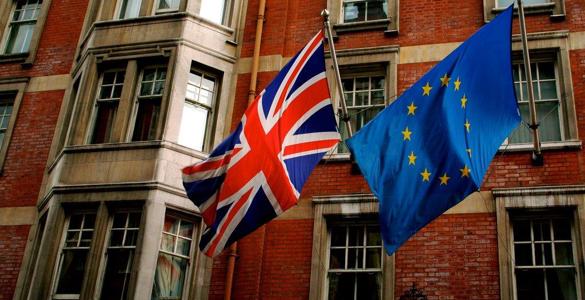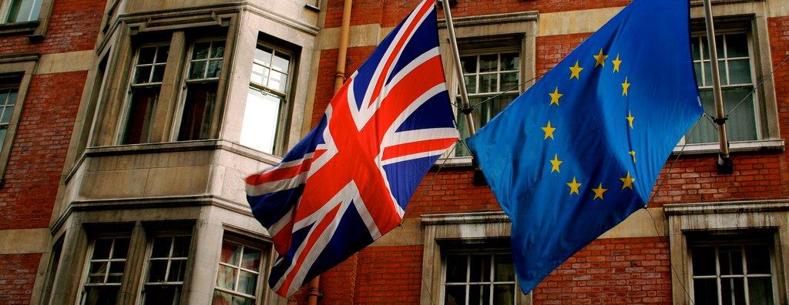The UK Prime Minister, Theresa May, has sent notification to the European Council of the UK Government’s intention to trigger Article 50 of the Treaty on European Union. The notification signals the beginning of the two-year period within which a withdrawal agreement has to be negotiated between the UK and the European Union.
This two-year period can only be extended by unanimous agreement of all Member States. Under the process outlined in Article 50 the European Council have to approve any agreement by a qualified majority and the European Parliament has to vote in favour of a deal by a simple majority. A qualified majority in the European Council means at least 72% of Member States representing at least 65% of the population of the 27 must vote in favour. This equates to 20 Member States. The EU’s total estimated population in 2015 was 508 million inhabitants. The 2015 figure for the EU minus the UK would be 442 million inhabitants (65% of which would be approximately 287 million inhabitants). The most populous of the 27 Member States are Germany, France, Italy, Spain and Poland and the least Malta, Luxembourg, Cyprus, Estonia and Latvia.
The UK will be treated as a non-EU State for the purposes of any Article 50 discussions and will therefore not participate in discussions in the European Council on the withdrawal negotiations. The EU will conduct the negotiations in accordance with Article 218(3) of the Treaty on the Functioning of the European Union. This is the Article which sets out the process the EU follows when it negotiates agreements with any non-EU countries, for example when it negotiates trade deals.
In line with the requirements of this Article, the European Commission will present proposals for negotiating guidelines to the European Council. These will set out the broad priorities and parameters that the EU will seek to pursue in its negotiations with the UK. The European Council is the body which includes the Heads of State and Government of Member States, the President of the European Council, Donald Tusk and the President of the European Commission Jean-Claude Junker. The President of the European Council, Donald Tusk, has indicated that European Council members, minus the UK, will meet on 29 April to agree these guidelines.
It is likely that once the guidelines have been agreed the European Commission will be given the responsibility for preparing detailed negotiation directives for the Council of the EU to agree by a qualified majority vote. The Council of the EU is the body where the ministers of Member States below the heads of state meet. The Council meets in different configurations where different government ministers attend according to the subject area. For example agriculture ministers attend the Agriculture Council.
It is likely that the General Affairs Council made up of European or foreign affairs ministers will vote on the negotiating directives. It has been suggested that this vote will take place towards the end of June 2017 after the French Presidential elections on 7 May. Only once this vote has taken place can formal negotiations begin.
It is anticipated that Michel Barnier, head of the European Commission’s task force will be asked by the European Council to lead the EU’s negotiations on Brexit, but he is likely to work closely with Didier Seeuws, Head of the Council’s Task Force on Brexit. Guy Verhofstadt, the European Parliament’s lead negotiator is also likely to be closely involved in the discussions given that the consent of the European Parliament to the final deal is required by Article 50.
It is not yet known what format the negotiations will take, how many there will be, who will be in the room and where they will take place. This is the first thing that is likely to be agreed. The Welsh Government has called for the devolved administrations to be fully involved in the negotiations, particularly on areas of devolved competence and in reserved matters such as trade that could impact upon areas of devolved competence such as agriculture.
Reactions to the Notification
In her Article 50 letter to President of the European Council, Donald Tusk, the Prime Minister stated that the UK Government would take account the specific interests of the different countries and regions of the UK in its negotiations with the EU. In addition, the Prime Minister outlined:
When it comes to the return of powers back to the United Kingdom we will consult fully on which powers should reside in Westminster and which should be devolved to Scotland, Wales and Northern Ireland. But it is the expectation of the Government that the outcome of this process will be a significant increase in the decision-making power of each devolved administration.
The First Minister for Wales, Carwyn Jones, has stated that the Welsh Government is committed to the priorities set out in its White Paper and will work 'constructively' with the U.K. Government' in the negotiation process. However, the First Minister also stated that:
If as the negotiations progress, we believe our priorities are not being championed our our representation falls below a level we find acceptable, we will not remain silent. We will not allow Wales to be side-lined- we will be outspoken and our voice will be heard.
David Rees, Chair of the Assembly’s External Affairs Committee, has stated:
The triggering of Article 50 marks a significant moment in the history of our country. The two-year negotiating period will now begin in earnest and our cross-party committee will work tirelessly to ensure that the Welsh voice is heard in London, in Brussels, and in capitals across Europe.
The Assembly’s work on Article 50 and the UK’s exit from the EU
The Assembly has held a number of debates and discussions on the UK’s exit from the EU. Work on considering the implications for Wales of the UK’s exit is being led by the External Affairs and Additional Legislation Committee (@SeneddEAAL). The Committee held a national conference to discuss the priorities for Wales in the Article 50 negotiations on 27 March in the Pierhead, Cardiff. The conference brought together key organisations and bodies from across Wales with young people and Assembly Members to discuss priorities for the next two years.
Other Assembly Committees are undertaking inquiries into specific sectoral issues. The Climate Change, Environment and Rural Affairs Committee recently published its report on the future of land management in Wales and the Equalities and Local Government Committee is undertaking an inquiry on human rights in Wales which includes consideration of the UK’s withdrawal from the EU on human rights protection in Wales.
Article by Nia Moss, National Assembly for Wales Research Service.
This post is also available as a print-friendly PDF: Article 50 has been triggered; what happens next? (PDF, 180KB)






